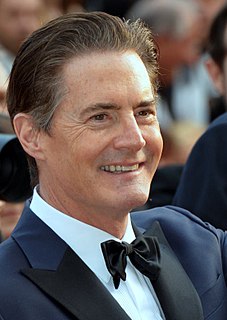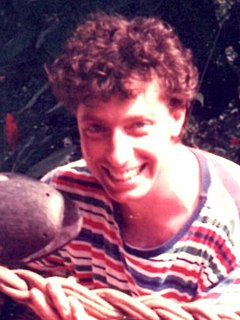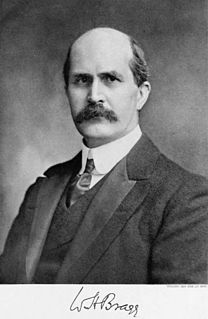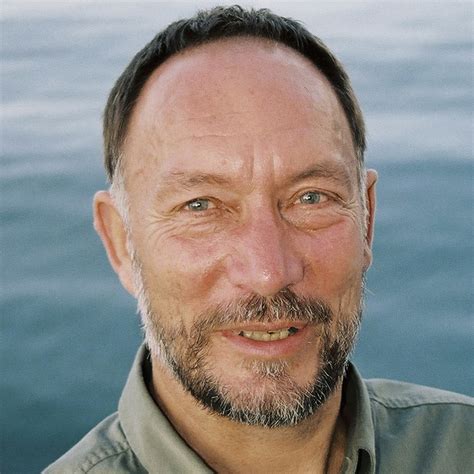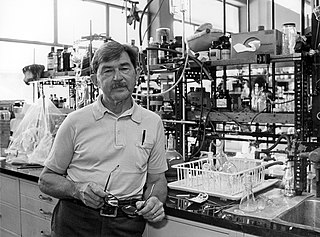Top 456 Atoms Quotes & Sayings - Page 6
Explore popular Atoms quotes.
Last updated on December 12, 2024.
If we consider what science already has enabled men to know-the immensity of space, the fantastic philosophy of the stars, the infinite smallness of the composition of atoms, the macrocosm whereby we succeed only in creating outlines and translating a measure into numbers without our minds being able to form any concrete idea of it-we remain astounded by the enormous machinery of the universe.
All things are made of atoms - little particles that move around in perpetual motion, attracting each other when they are a little distance apart, but repelling upon being squeezed into one another. In that one sentence, you will see, there is an enormous amount of information about the world, if just a little imagination and thinking are applied.
Coquettes are, but too rare. It is a career that requires great abilities, infinite pains, a gay and airy spirit. 'T is the coquette who provides all the amusements,--suggests the riding-party, plans the picnic, gives and guesses charades, acts them. She is the stirring element amid the heavy congeries of social atoms,--the soul of the house, the salt of the banquet.
Angels speak. They appear and reappear. They feel with apt sense of emotion. While Angels may become visible by choice, our eyes are not conducted to see them ordinarily any more than we can see the dimensions of a nuclear field, the structure of atoms, or the electricity that flows through copper wiring.
If we ever establish contact with intelligent aliens living on a planet around a distant star ... They would be made of similar atoms to us. They could trace their origins back to the big bang 13.7 billion years ago, and they would share with us the universe's future. However, the surest common culture would be mathematics.
Haemoglobin is a very large molecule by ordinary standards, containing about ten thousand atoms, but the chances are that your haemoglobin and mine are identical, and significantly different from that of a pig or horse. You may be impressed by how much human beings differ from one another, but if you were to look into the fine details of the molecules of which they are constructed, you would be astonished by their similarity.
I prove the supreme law of Gods and sky,
And the primordial germs of things unfold,
Whence Nature all creates, and multiplies
And fosters all, and whither she resolves
Each in the end when each is overthrown.
This ultimate stock we have devised to name
Procreant atoms, matter, seeds of things,
Or primal bodies, as primal to the world.
Pauling was shocked by the freedom with which the X-ray crystallographers of the time, including particularly Astbury, played with the intimate chemical structure of their models. They seemed to think that if the atoms were arranged in the right order and about the right distance apart, that was all that mattered, that no further restrictions need to be put on them.
Passion, though a bad regulator, is a powerful spring. Any absorbing passion has the effect to deliver from the little coils and cares of every day: 'tis the heat which sets our human atoms spinning, overcomes the friction of crossing thresholds, and first addresses in society, and gives us a good start and speed, easy to continue, when once it is begun.
But I tell you - and mark my words - you will come some day to a craggy pass in the channel, where the whole of life's stream will be broken up into whirl and tumult, foam and noise: either you will be dashed to atoms on crag points, or lifted up and borne on by some master-wave into a calmer current.
There are a variety of ways in which a wedge is driven between the reality of the world outside, the motion of atoms, and our conception of what is there. Some of it has to do with what we're told, some of it to do with sensibilities that might be described as cultural, some of it to do with habit, some to do with heuristics we, as Homo sapiens, invoke because we cannot do otherwise - to name just a few of the impediments.
We may find the Divine to be 3,000 times what we think it is now. It's like asking the tulip there to explain you. The tulip is a beautiful creation, with millions of atoms cooperating with each other to produce great beauty, but ask that tulip to talk about you, and it can't do it. It doesn't have those perceptive abilities. Wouldn't it be conceited to suggest that I had the abilities to describe the deity?
I do not think science has to make any apologies. It looks at the world and tells it like it is. And we all live longer, better lives because of this dispassionate view. Sure, it commands awe and provides inspiration. Still, I would rather be operated on by a surgeon who sees me as an assemblage of atoms than one who lovingly tries to manipulate what he or she imagines are my vital energy fields.
If we do find ET, we will at least have something in common with them. They may live on planet Zog and have seven tentacles, but they will be made of the same kinds of atoms as us. If they have eyes, they will gaze out on the same cosmos as we do. They will, like us, trace their origins back to a 'Big Bang' 13.8 billion years ago.
Clinical psychology tells us arguably that trauma is the ultimate killer.Memories r not recycled like atoms and particles in quantum physics. they can be lost forever. It’s sort of like my past is an unfinished painting and as the artist of that painting,I must fill in all the ugly holes and make it beautiful again.
Some say that everything that is called a psychical law is nothing but the psychological reflex of physical combinations, which is made up of sensations joined to certain central cerebral processes... It is contradicted by the fact of consciousness itself, which cannot possibly be derived from any physical qualities of material molecules or atoms.
Apparently there is a great discovery or insight which our culture is deliberately designed to suppress, distort, and ignore. That is that nature is some kind of minded entity. That nature is not simply the random flight of atoms through electromagnetic fields. Nature is not the empty, despiritualized , lumpen matter that we inherit from modern physics. But it is instead a kind of intelligence, a kind of mind.
Thor is magical, yes, but it is the magic of reality. His hammer was crafted 'in the heart of a dying star,' but so were you! Most of the atoms that make you up are in fact the innards of a ball of gas in space that got so heavy that it exploded. Stars died so that you could live, as physicist Lawrence Krauss would say.
Chemists are, on the whole, like physicists, only 'less so'.They don't make quite the same wonderful mistakes, and much what they do is an art, related to cooking, instead of a true science. They have their moments, and their sources of legitimate pride. They don't split atoms, as the physicists do. They join them together, and a very praiseworthy activity that is.
I have a peculiar theory about radium, and I believe it is the correct one. I believe that there is some mysterious ray pervading the universe that is fluorescing to it. In other words, that all its energy is not self-constructed but that there is a mysterious something in the atmosphere that scientists have not found that is drawing out those infinitesimal atoms and distributing them forcefully and indestructibly.
From all we have learnt about the structure of living matter, we must be prepared to find it working in a manner that cannot be reduced to the ordinary laws of physics. And that not on the ground that there is any 'new force' or what not, directing the behaviour of the single atoms within a living organism, but because the construction is different from anything we have yet tested in the physical laboratory.
Man is the product of causes which had no prevision of the end they were achieving; his origin, his growth, his hopes and fears, his loves and beliefs, are but the outcome of accidental collocations of atoms; no fire, no heroism, no intensity of though and feeling, can preserve an individual life beyond the grave.
The world-spirit is a good swimmer, and storms and waves can not drown him. He snaps his fingers at laws; and so, throughout history, heaven seems to affect low and poor means. Through the years and the centuries, through evil agents, through toys and atoms, a great and beneficent tendency irresistibly streams.
If you like, there is a Guinness time. The reason for that it's fundamental. It is not that we have to keep shortening the time. It turns out all molecular and biological systems have speeds of the atoms move inside them, the fastest possible speeds are determined by their molecular vibrations and this speeds is about a kilometre per second.
Claims that some form of consciousness persists after our bodies die and decay into their constituent atoms face one huge, insuperable obstacle: the laws of physics underlying everyday life are completely understood, and there's no way within those laws to allow for the information stored in our brains to persist after we die.
The way the universe evolves in consciousness of itself and causes itself to be. We are just this blessed consciousness, nothing more, nothing less. We are the light inside light that fuses into the atoms of our bodies; we are the fire that whirls across the stellar deeps and dances all things into being.
If atoms do, by chance, happen to combine themselves into so many shapes, why have they never combined together to form a house or a slipper? By the same token, why do we not believe that if innumerable letters of the Greek alphabet were poured all over the market-place they would eventually happen to form the text of the Iliad?
I used to be a computer engineer, and I can make really good code, and we can make systems that work really well, and we can make the application a great experience, but when you have to translate bits to atoms, you need folks who are used to working with city governments, with state governments, and so I like to say we're in a political campaign.
Yet is it possible in terms of the motion of atoms to explain how men can invent an electric motor, or design and build a great cathedral? If such achievements represent anything more than the requirements of physical law, it means that science must investigate the additional controlling factors, whatever they may be, in order that the world of nature may be adequately understood.
Although we know nothing of what an atom is, yet we cannot resist forming some idea of a small particle, which represents it to the mind ... there is an immensity of facts which justify us in believing that the atoms of matter are in some way endowed or associated with electrical powers, to which they owe their most striking qualities, and amongst them their mutual chemical affinity.
Physicist Isador Isaac Rabi, who won a Nobel Prize for inventing a technique that permitted scientists to probe the structure of atoms and molecules in the 1930s, attributed his success to the way his mother used to greet him when he came home from school each day. "Did you ask any good questions today, Isaac?" she would say.
In a gas, motion has the upper hand; the atoms are moving so fast that they have no time to enter into any sort of combination with each other: occasionally, atom must meet atom and, so to speak, each hold out vain hands to the other, but the pace is too great and, in a moment, they are far away from each other again.
How can one be compelled to accept slavery? I simply refuse to do the master's bidding. He may torture me, break my bones to atoms and even kill me. He will then have my dead body, not my obedience. Ultimately, therefore, it is I who am the victor and not he, for he has failed in getting me to do what he wanted done.
Atoms are a relationship of energy. You are a relationship of energy interacting with another person who is another complex relationship of energy. We all exchange more than words with each other. . . We are made of the same substance as rocks and stars. .. We are an exotic cocktail living on this planet. .. We live in this universe which is a self-transcending reality
Science as an intellectual exercise enriches our culture, and is in itself ennobling. ... Though to the layman, the world revealed by the chemist may seem more commonplace, it is not so to him. Each new insight into how the atoms in their interactions express themselves in structure and transformations, not only of inanimate matter, but particularly also of living matter, provides a thrill.
It doesn't seem to me that this fantastically marvelous universe, this tremendous range of time and space and different kinds of animals, and all the different planets, and all these atoms with all their motions, and so on, all this complicated thing can merely be a stage so that God can watch human beings struggle for good and evil - which is the view that religion has. The stage is too big for the drama.
To check centralization and usurping of power ... we require a new laissez-faire. The old laissez-faire was founded upon a misapprehension of human nature, an exultation of individuality (in private character often a virtue) to the condition of a political dogma, which destroyed the spirit of community and reduced men to so many equipollent atoms of humanity, without sense of brotherhood or purpose.
If atom stocks are inexhaustible, Greater than power of living things to count, If Nature's same creative power were present too To throw the atoms into unions - exactly as united now, Why then confess you must That other worlds exist in other regions of the sky, And different tribes of men, kinds of wild beasts.
It is just as much a matter of chance that I am still alive as that I might have been hit. In a bomb-proof dug-out I may be smashed to atoms and in the open may survive ten hour's bombardment unscratched. No soldier outlives a thousand chances. But every soldier believes in Chance and trusts his luck.












